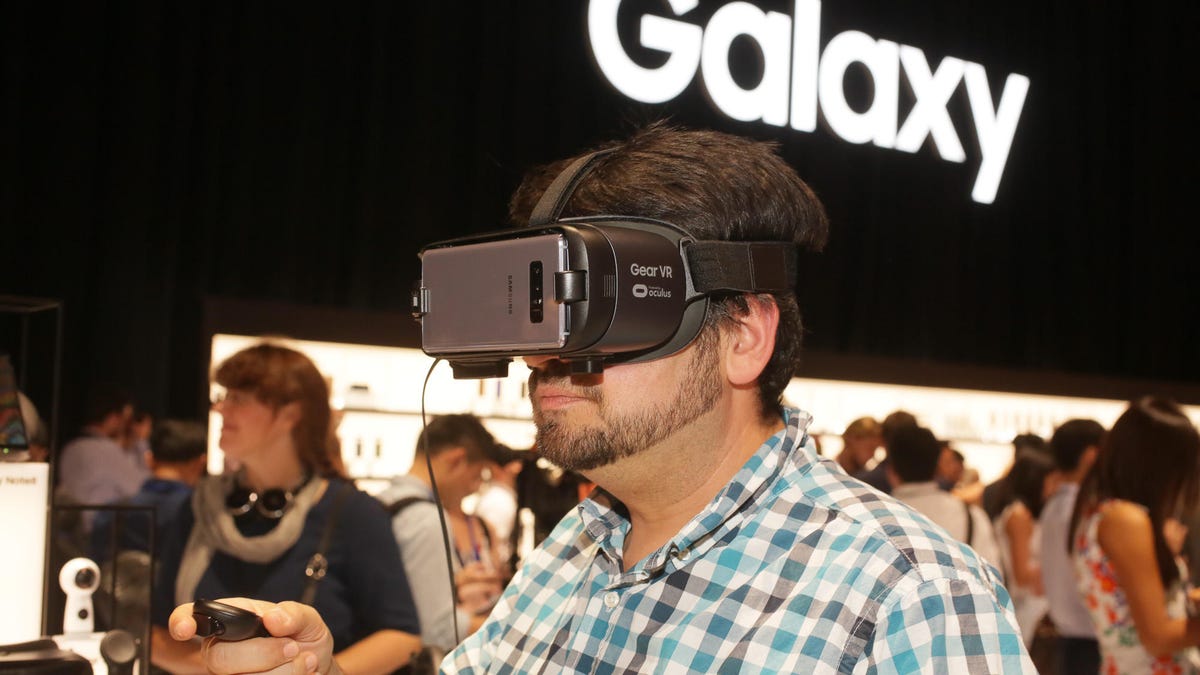Earlier this year, Samsung, Google and Qualcomm announced they’re partnering to create a new mixed reality platform. While none of them have announced details on what that platform will entail just yet, Samsung’s mobile chief provided more context about the company’s general vision for mixed reality.
And it will all likely start with our phones.
“So for the short term, perhaps many features or experiences [in] mixed reality would be in connection with [the] smartphone,” T.M. Roh, the president and head of Samsung’s mobile experience business, said through a translator in an interview at the company’s headquarters in Suwon, South Korea.
It’s been a busy year for virtual and augmented reality. Apple announced the Vision Pro, its $3,499 premium standalone headset, while Sony launched the second-gen PlayStation VR and Meta introduced the Quest 3. Samsung, Google and Qualcomm’s upcoming initiative is another sign that tech giants see head-mounted computers as being an important part of where personal computing is headed.
Roh couldn’t share much about the company’s specific plans, but did say the project with Google and Qualcomm is “moving as planned.” Speaking more generally about mixed reality, he said there are two avenues for mixed reality: one that’s linked to smartphones, and another that’s an “ecosystem that can be generated independently by mixed reality.”
He sees the latter standalone category, which is the approach Apple and Meta have taken with their respective Vision Pro and Quest Pro headsets, as being a mid- to long-term play. But there are several technical challenges to overcome before that happens.
“With our senses, we can understand location without feeling dizzy, but then to implement them on a device, that is still quite challenging,” he said. “And that is what consumers expect out of mixed reality as well. So I believe that we have some way to go until we can reach that point.”
The goal with Samsung’s forthcoming mixed reality collaboration will be to establish an open platform for mixed reality, said Roh. When asked, he said the approach is similar to the way Samsung and Google have partnered on Wear OS software for Android-powered smartwatches. As my colleague Scott Stein recently pointed out, that’s one reason why phone-based mixed reality seems like a sensible option for this partnership.
“And for us, the [mixed reality] vision that we are pursuing is where there is an open ecosystem, open platform where many third parties can participate in the MR or the XR ecosystem,” he said.
Although Samsung and its partners have yet to discuss details about this new platform, Roh has some ideas about the types of apps and services that would work well in mixed reality. He thinks there’s an opportunity for mixed reality to improve everyday experiences we already use our phones for, like communication and viewing content on a larger screen. That approach is similar to what we’ve seen in Apple’s promotional videos for the Vision Pro.
Samsung’s entry into mixed reality, especially as part of a partnership with Google, sounds like an opportunity to build up from the devices Samsung already has in its portfolio. If that’s a smaller set of glasses, it could be a phone-connected device rather than something truly standalone. But if that’s the case, it could also mean a smaller form than something like Apple’s Vision Pro.
Samsung isn’t new to VR and AR. Its smartphone-driven Gear VR headset, introduced in 2014 as the Gear VR Innovator Edition, was one of the first gadgets to popularize the technology. It provided simpler VR experiences at a cheaper price than early PC-bound headsets like the Oculus Rift. Google took a similar approach with its Cardboard VR headsets, which like the Gear VR provided phone-based VR experiences at affordable prices. Samsung’s also had several AR features on its phones for years, and manufactured PC VR headsets.
But both company’s have been relatively quiet about their mixed reality ambitions until the announcement of this partnership, with Google’s former head of VR departing the company earlier this year.
It’s unclear when Samsung and its partners will discuss more details about their mixed reality partnership. But at Google’s I/O developer conference in May, Sameer Samat, Google’s vice president of product management for Android, said the company will share more about its “immersive XR” partnership later this year.
